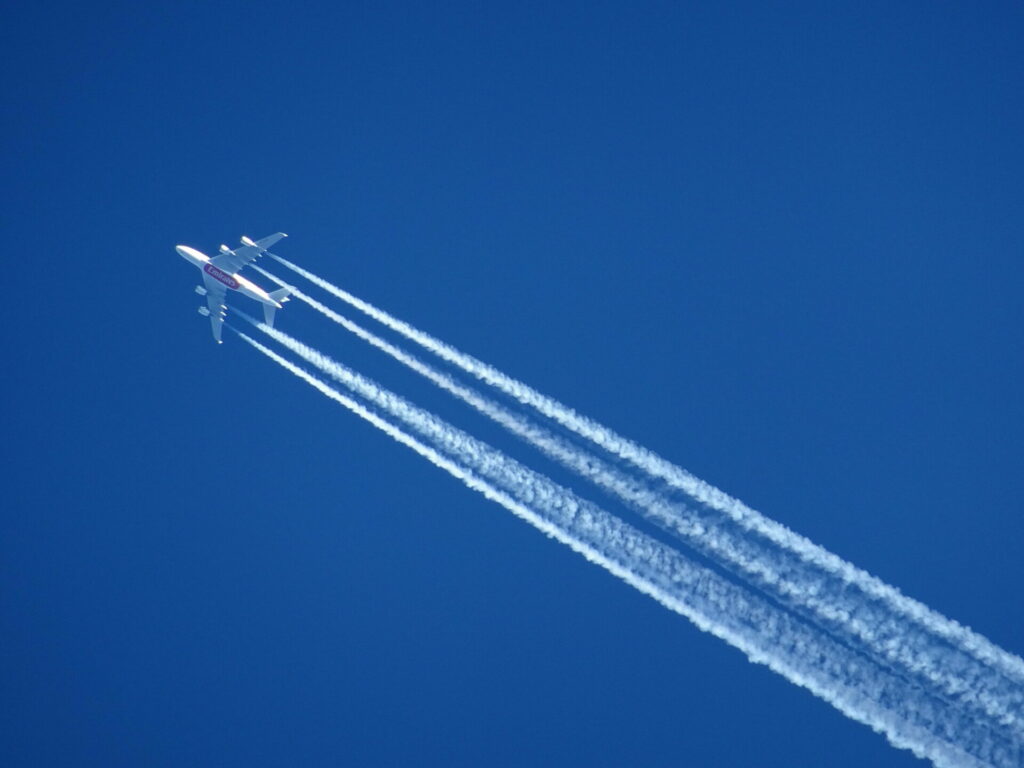Last week, a plane was refuelled with biokerosene for the first time at Brussels Airport. By 2026, biokerosene is expected to represent 5% of the kerosene used by the Belgian airline's fleet.
Brussels Airlines is not the only company in Europe doing this: Air France has also recently integrated biokerosene into its fleet. More than 50 airlines in the world have already tested it, according to the International Air Transport Association (IATA).
The aviation sector alone emits 2% of global CO² emissions into the atmosphere. Another undesirable effect of flights is that their emissions of white clouds or "trails" prevent heat from the ground from escaping into the atmosphere and also contribute, to a large extent, to global warming. Airlines around the world have committed to achieving net-zero CO² emissions by 2050, but is this just wishful thinking?
For Jean Collart, an expert in aeronautics, being able to use biofuels is already a first step. "For the moment, not all aircraft engines are adapted to operate with more than 50% biokerosene,” he told RTBF. “It must therefore be mixed with classic kerosene. But eventually, with adjustments to pumps and engine seals, aircraft could use 100% biokerosene. In the next five to ten years, planes could pollute half as much."
Not a silver bullet
Ultimately, these biofuels are expected to reduce CO² emissions from aviation by 80%. Collart, however, accepts that biokerosene does not solve all problems. "We have the potential, but it will not supply the entire European air fleet."
Indeed, we are far from the mark in terms of figures: global biokerosene production was just 50 million litres last year, a volume that IATA expects to double this year. Global commercial aviation burned 200 billion litres of kerosene in 2018.
Patrick Hendrick, a specialist in aerodynamics at the Université libre de Bruxelles (ULB), is closely following the development of this sector and he remains optimistic. "Today, we produce perhaps 1/1000th of our biokerosene needs, but we are witnessing an explosion in the production of these fuels,” he told RTBF.
“The Finnish firm Neste produced 15 times more in 2022 than the previous year and promises to produce five times more in 2023. The manufacturing potential of biokerosene is enormous because it can develop through multiple sectors; solid waste, liquid food, forest and agricultural waste. That is what gives it its advantages."
Related News
- First 'sustainable aviation fuel' flight in Belgium departs from Brussels Airport
- Airlines struggle to reach CO2 targets as innovation lags behind
- Ruinair? Airline ads across Europe 'hacked' in climate protest
Francesco Contino, professor of aerodynamics and energy specialist at UCLouvain, told RTBF that he thought it was unlikely the sector would ever go to using 100% biokerosene, and also dismissed other mooted alternatives. “Hydrogen is not an alternative and neither is electrification,” he said. “You have to store hydrogen in very heavy tanks and the electric batteries are also too heavy, while a kerosene plane loses a good chunk of its weight during flight."
"It will be necessary to develop, in the future, synthetic fuel or E-fuel oil, combining hydrogen with carbon," said Contino, adding that biokerosene is not only an alternative for aviation, but it is also one for all forms of mobility.
"We will have to choose what type of transport, in the future, will be prioritised for biofuel,” he said. “The boats and trucks that transport our goods are also in the race and the potential for biofuel is not exponential. This biomass must also not compete with food. It will therefore not be able to meet all needs."
These experts are unanimous on one point: we use planes too much in Europe. The European continent is small. If we decided to replace flights of less than 700 kilometres with train journeys, we could reduce our pollution by a factor of four, said Collart. "If our governments decided to impose a tax of €8 to €10 on short-haul flights, it would force us to reposition ourselves on our transport choices. We need to create an incentive policy to break our flying habit."

